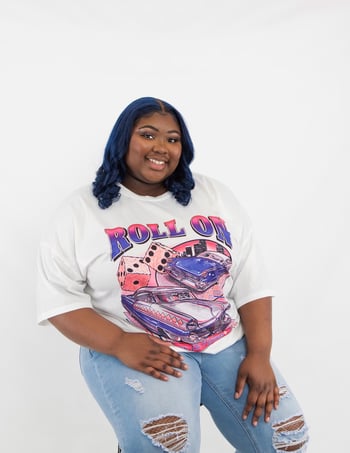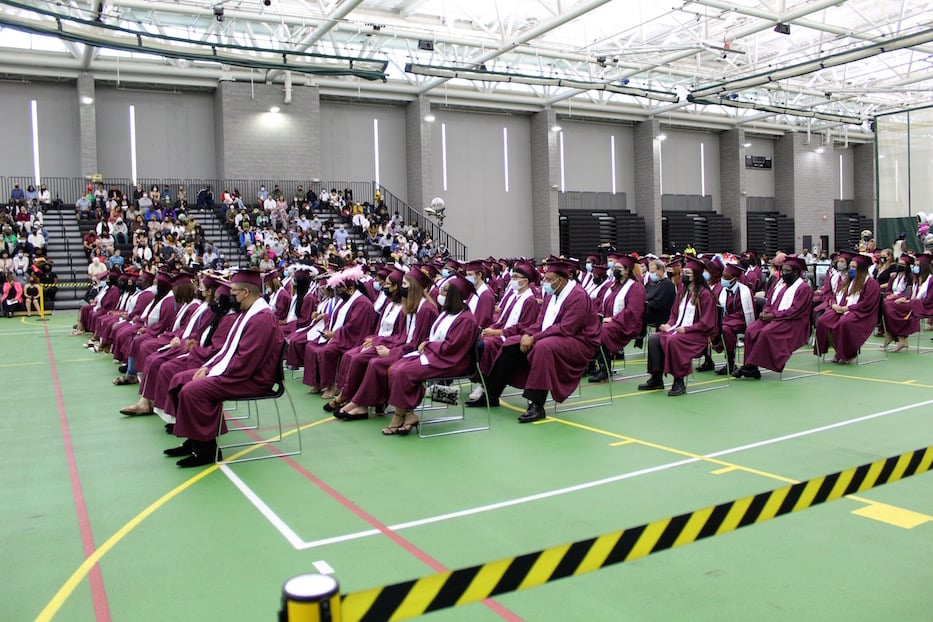 Research papers on deadline. Running up against the clock while holding a part-time job. Rapid levels of anger boiling over as my anxiety reaches its stress limit.
Research papers on deadline. Running up against the clock while holding a part-time job. Rapid levels of anger boiling over as my anxiety reaches its stress limit.
The transition from being a confused high school senior to becoming a determined college freshman—and now an early-semester sophomore—has been a rollercoaster.
A year ago, I graduated from Cooperative Arts & Humanities High School with a concentration in creative writing. When I headed to Southern Connecticut State University (SCSU) last fall, I was expecting everything to fall in place. I thought my experience would be similar to starting a new year in high school, the process of making friends and connecting to the school being easy despite the common feeling of being nervous.
Instead, it’s a lot more difficult being that in college, because you are on your own.
There’s no one there to hold your hand, to give you reminders about upcoming assignments, to slip you a cheat code to how to become successful. Once you step into college, it feels like you are a part of the “adult world”—and every decision or choice you make will determine how you succeed throughout the years.
Maybe reality has been bottled up and fermenting for years. I was a junior in high school when the pandemic started, and my grades took a toll when classes went remote and I took a part-time job in food service. With classes remote, there was almost a lack of engagement—and the possibility of not engaging—baked in. Students, including myself, were able to roll over in bed at the last minute to stare at a bright screen, and close the laptop to go back to bed when class was “dismissed.”
Although I wish my senior year could’ve ended the traditional way—a senior breakfast, a senior trip, and a proper preparation for a senior prom and graduation—the feeling of joy from writing my own content in my work was also freeing. There were no strict rules to follow and no one to judge my writing over my shoulder, just me and a pen writing out my thoughts. There was a feeling of relief when I graduated and knew that all my hard work and struggles eventually paid off.
When I graduated, I was able to rebuild connections with family and friends, and develop a deeper connection with my writing by “trusting the process”—allowing myself write everything that came to mind even when it didn’t make sense. I placed my spinning ideas into drafts for a final piece. I was able to start a self-healing journey using a journal to write out any anger, sadness, or guilt I have been holding on to from things in my past, burning the pages as a way of acceptance to letting the past go.
I had claimed 2021 as my year. Then I got to college.
The Transition
 Members of Co-Op's graduating class of 2021 at James Hillhouse High School last year. Lucy Gellman File Photo. The above photo of Jamiah Green was contributed by the author.
Members of Co-Op's graduating class of 2021 at James Hillhouse High School last year. Lucy Gellman File Photo. The above photo of Jamiah Green was contributed by the author.
After graduating as part of the class of 2021, I felt relieved that I would be becoming a college student, and starting a new chapter in life. When Covid-19 shut schools down back in 2020, I lost the chance to connect with my counselors and administrators for help with the college process. Because of this, I missed out on a number of scholarship and grant opportunities, as well as a few college deadlines for tours.
I still applied to 10 schools on my own, and received seven acceptance letters back. My top school choice was University of Maine, but since I have no family located there, I crossed it off the list. My second choice was the University of Connecticut (UCONN), because the school was a common choice among my other peers. However, due to the financial situation I was in, it was best to make the decision on settling with my third school choice. That was SCSU.
Entering Southern for the fall semester of 2021, I mostly felt nervous, excited, terrified—every emotion you could describe as someone steps into an environment they are unfamiliar with. The friends that came to Southern with me were in different majors. I had no idea where my classes in each building were. I felt as though I would be judged on my appearance. My emotions were all over the place.
In the beginning, I felt unprepared with class materials, as if I was a ghost just sitting at a table or desk, just taking everything in. I didn’t know anybody and didn’t have the confidence to start a conversation, so I stayed quiet and to myself. I felt stupid for not knowing where I was going and needing to ask someone for directions. I was being hard on myself for feeling something that was very common and normal in situations like this.
As time went on, I started to make a few friends during group projects and studying in the library. During class discussions, I noticed that a lot of us could relate to each other’s personal situations, and that’s when I started adjusting to the idea that I would fit right in. I wanted to be more active on campus, whether it was finding programs to join or even hanging out in the student center with my friends.
Southern helped me build the confidence I lost at those moments, and gave me the experience that it is a friendly and judgment-free zone. After receiving help from my inquiry professor with setting up my spring class schedule, I thought I was more than ready to continue my college journey.
Spring Semester Struggles
Once the spring semester started, I began to struggle as school and work became a juggling act. My original goal was to complete five to six classes each semester while maintaining a 3.0 grade point average (GPA), in an attempt to accomplish the requirements needed to double major in journalism and criminology. Due to requirements from each class, as well as my scheduled overnight shifts at a manager at a fast food restaurant, I felt as though I was barely reaching the surface. There were more assignments than time to complete them—all while trying to get enough sleep.
By February, I found a way for me to drop the least important classes for the semester, allowing me to retake them next semester and still manage to get enough credits in time.
Unfortunately, I think that life decided that wasn’t enough.
In March of this year, I started to go through a period of depression. It was like the light switch to my motivation shut off. When this happened, I could only sleep and work in an attempt to distract my mind with something new. I didn’t reach out to friends, family, or professional help. I stopped submitting assignments on time. Then I stopped attending class entirely.
Even though I tried to keep pushing towards the finish line with the little amount of motivation I could find, it wasn’t enough to get me in a good position with my grades. Despite passing one class for the semester, I was given an academic warning due to the requirements not being met, and told that if it is not fixed by next spring, I could suffer from financial aid and grants being taken away and the possibility of being dropped from my classes.
I pulled my diary back out. I turned to friends, and to music. I set up a weekly gym schedule and started budgeting carefully. By the end of spring, I was able to register for two summer classes, and received enough funding from the school in to have them paid off. I cut down my hours at work in order to put my focus on school, but still make enough money to pay off my part in college tuition. I feel that with this plan being in motion, I will be able to succeed.
If I can succeed with this plan, I can succeed in anything I put my mind to.
I wanted to share my college story with others in my situation, because we—students—are all in this together. There may be people out there who can tell you that their college experience has been a breeze, but I feel that most people will leave out the reality of the struggles along the way. If you are a college student in a similar situation, I'm hoping that my story can make you realize that you are not alone. If I can find a way to succeed, so can you. There is success out here in the world for everyone, we just have to find what part of it belongs to us.
Jamiah Green is a graduate of the Youth Arts Journalism Initiative, which she joined in spring 2019. She is now a sophomore at Southern Connecticut State University (SCSU). Read her work here.